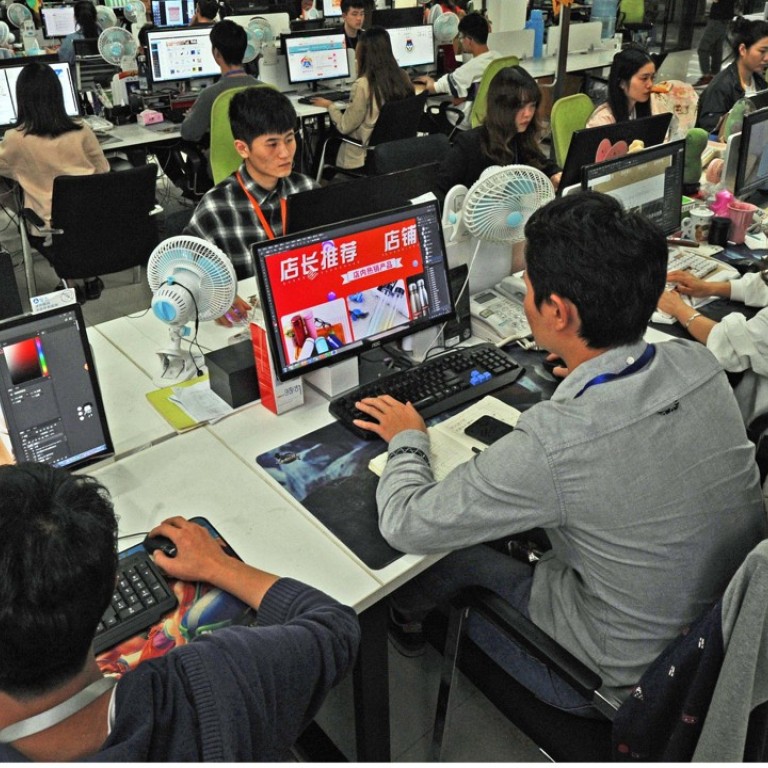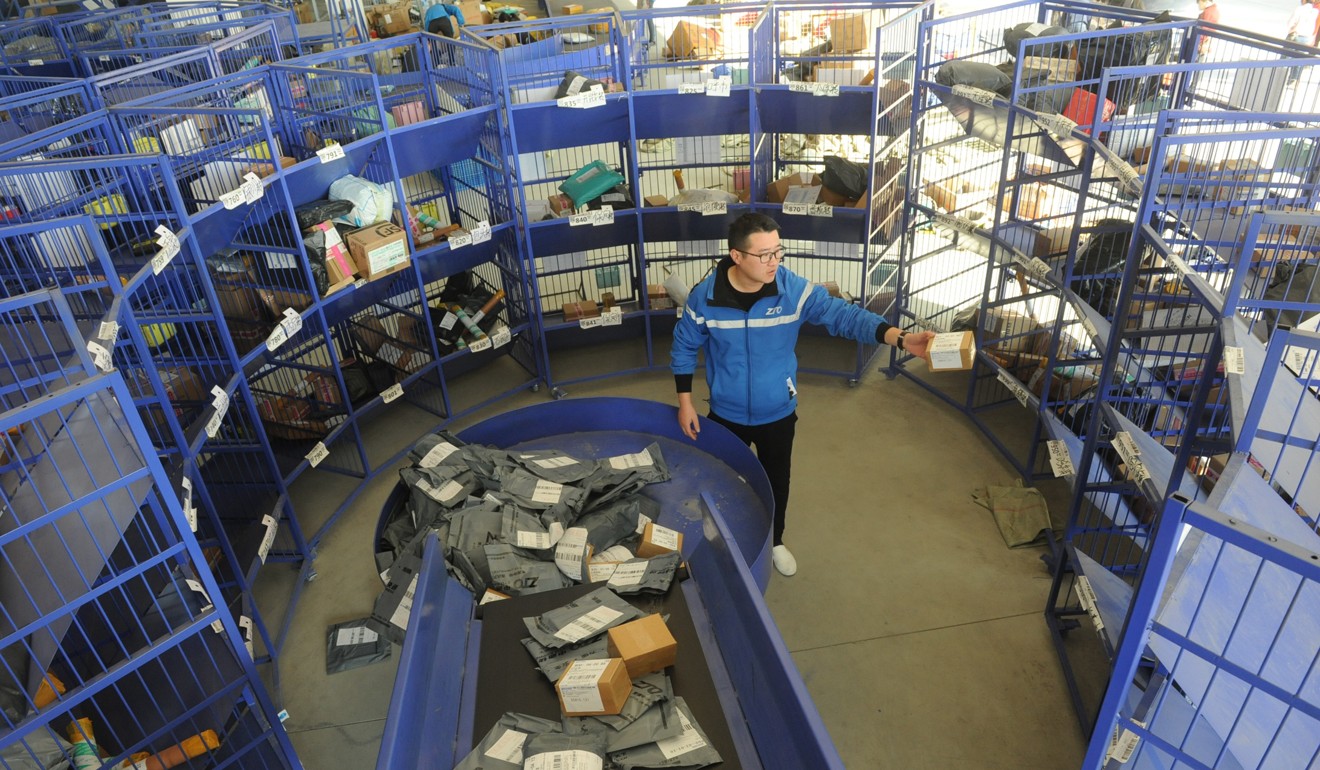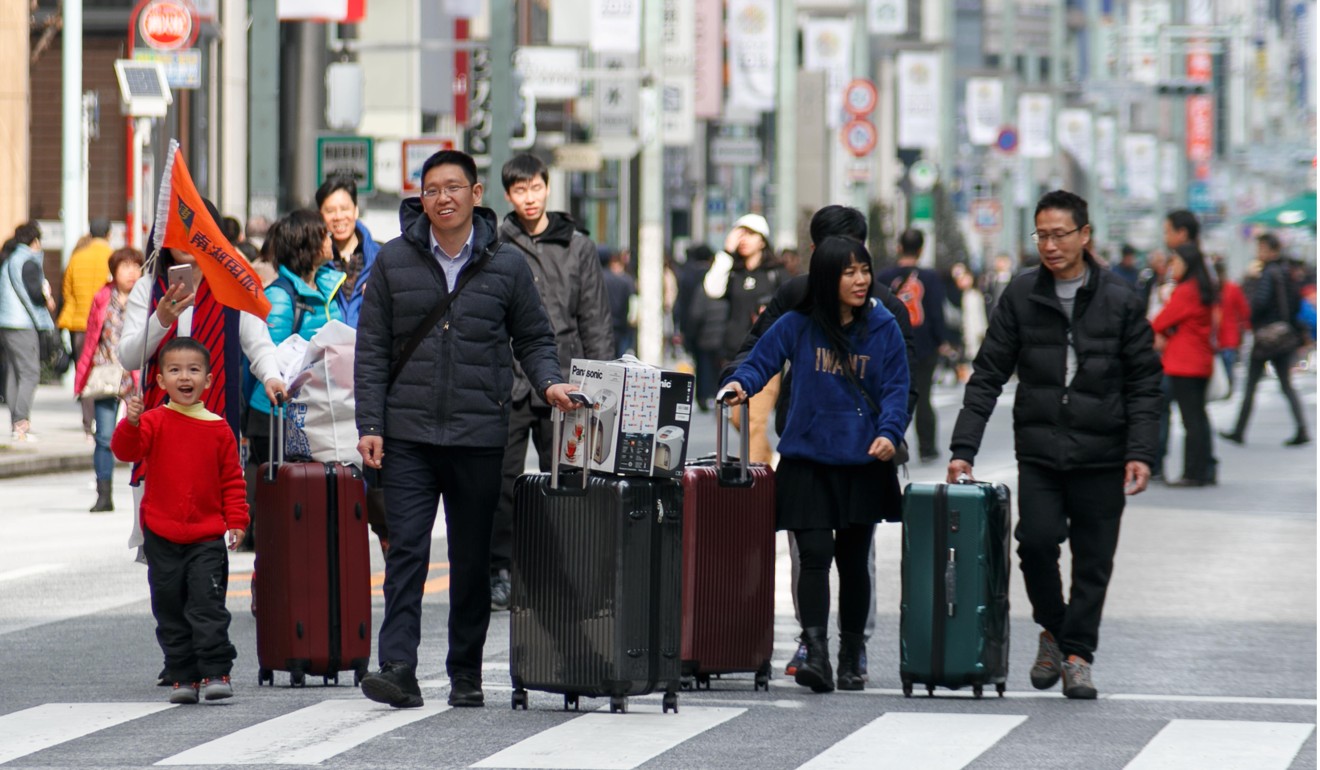
More duty-free spending power for China’s e-commerce consumers to help boost imports
- Personal allowance to increase by 30pc from January 1 to US$3,750 a year as Beijing seeks to deliver on its pledge to promote global trade
- Value of China’s cross-border e-commerce market doubled last year to 56.59 billion yuan
Chinese consumers will soon be able to spend 30 per cent more on tariff-free goods from outside the mainland as Beijing seeks to make good on its pledge to boost imports amid its trade war with the United States.
From January 1, the annual quota on cross-border e-commerce purchases for individual buyers would rise to 26,000 yuan (US$3,750) from 20,000 yuan, the government said on Wednesday, after a meeting of the State Council, the nation’s cabinet.
The tax-free limit on single transactions, meanwhile, would increase by 150 per cent, to 5,000 yuan, it said.
Xi Jinping promises greater opening up at China International Import Expo, warns against winner-takes-all mentality
The move comes after Chinese President Xi Jinping promised this month to boost imports. In his keynote speech at the China International Import Expo, he said the world’s second-largest economy would lower tariff levels, improve customs clearance processes, reduce the cost of importing goods and accelerate the growth of cross-border e-commerce.

China’s 1.3 billion consumers have become increasingly drawn to foreign goods available on overseas websites, with the value of such transactions more than doubling last year to 56.59 billion yuan, according to customs data.
“[The larger quotas will] support opening up and stimulate consumption,” Chinese Premier Li Keqiang said after the meeting.
Small China e-commerce firms to be hit hard by US withdrawal from Universal Postal Union
The government said that as well as increasing the personal quotas it would add 63 items to the list of products covered by the tariff-free scheme, all of which it described as having “mass demand”.
The list was first compiled in 2016 and as well as being tariff-free, all of the goods on it – from cosmetics to baby milk formula – are exempt from the usual trading rules and processing procedures, which makes them much easier to buy.
The rules now apply only to consumers in 15 Chinese cities, although this number will also increase, by seven, from the start of 2019. Among the new additions will be Beijing, Nanjing, Wuhan and Xiamen.

The government said it would also improve its export tax rebate policy next year to encourage vendors in China to sell more goods via cross-border e-commerce platforms.
Such is the popularity of cross-border e-commerce that all of China’s leading shopping platforms, including Alibaba – which owns the South China Morning Post – JD.com and NetEase now offer the service. The huge market has also attracted international players, like Amazon, which introduced its Prime Day event to China last year and promoted the annual Black Friday event on its Chinese website.
Despite its growing popularity, cross-border transactions represent only a fraction of China’s 36 trillion yuan retail sales market.
Beijing’s latest efforts to boost consumer spending come at a time of slowing growth. Retail sales in October rose 8.6 per cent year on year, which was close to the 15-year low of 8.5 per cent recorded in May, according to figures from the National Bureau of Statistics.
Meanwhile, online spending on goods in the first 10 months of the year rose 26.7 per cent year on year, slowing from 27.7 per cent in the year through September and 28.6 per cent over the first eight months, the bureau said.

Citic Securities said in a research note on Thursday that the latest policy move to boost consumer spending was the third since September and provided clear evidence of Beijing’s commitment to stimulating domestic demand.
Beijing must show courage to fulfil its market promises, says China’s economic reform guru
However, the higher tariff-free quotas were unlikely to cause a major upturn in the consumer spending figures, it said.
“The increase in the single transaction limit is meaningful for high-value products”, but such items “account only for a small part of cross-border e-commerce”, it said.
Besides the increase to duty-free quotas, Beijing said it would also tighten its controls from next year on the activities of daigou, the name given to people who travel outside mainland China’s borders to buy goods on their clients’ behalf.

